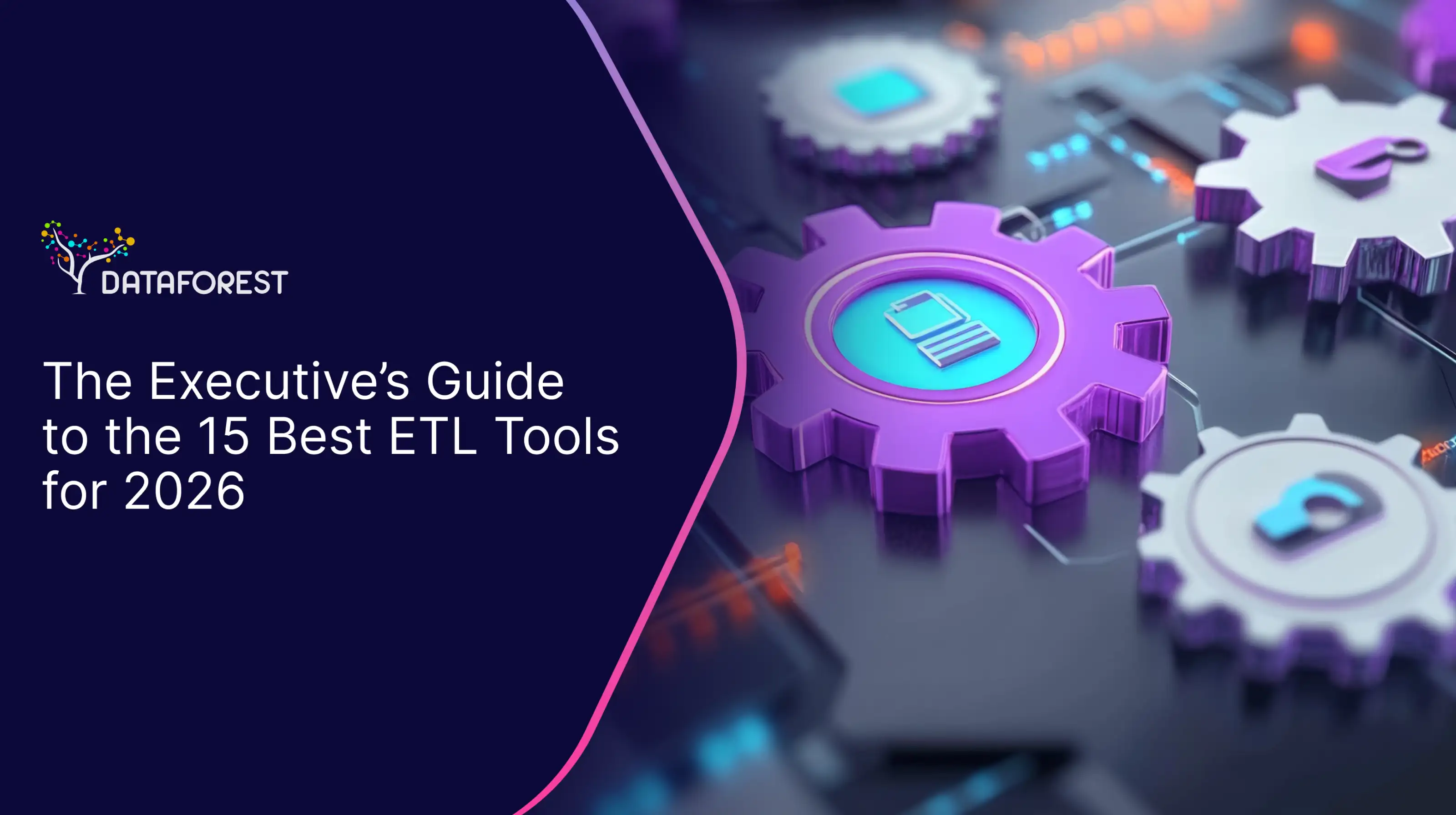The Significance of SaaS Applications in Modern Businesses
As the SaaS market experiences exponential growth, global end-user spending on SaaS is projected to soar to $591.8 billion by the end of 2023. By 2025, approximately 85% of businesses will embrace SaaS-based software, underscoring its essential role in contemporary business operations.

SaaS data integration is not just a technological trend but a strategic necessity. Here’s why:
- Reduce Costs: A significant 35% of organizations adopt SaaS data integration to reduce operational expenses.
- Increase Productivity: Over half (54%) leverage SaaS data integration to boost productivity, streamlining workflows and automating repetitive tasks.
- Improve Employee Experience: Enhancing the employee experience is a priority, with 23% of businesses focusing on this through SaaS data integration.
- Increase Security: With 27% prioritizing security, SaaS data integration ensures robust protection of sensitive data.
- Speed Up App Deployments: 18% of organizations accelerate their application deployment processes with SaaS data integration.
- Enable a Remote Workforce: Facilitating remote work, 6% of businesses rely on SaaS data integration to maintain seamless operations.

Despite its numerous benefits, integrating SaaS solutions comes with challenges. Organizations engaged with public cloud services face significant hurdles:
- Security Concerns (66%): Security remains the top challenge, necessitating advanced measures within SaaS data integration frameworks.
- Governance & Compliance (60%): Ensuring regulatory compliance is crucial, highlighting the need for comprehensive governance within data integration SaaS.
- Privacy Issues (57%): Protecting data privacy requires robust data integration SaaS protocols.
- Vendor Lock-In (47%): Avoiding dependency on specific vendors is a concern, making flexible SaaS data integration solutions essential.
- Unplanned Outages (31%): Mitigating risks of outages and ensuring uptime is critical within SaaS data integration strategies.
SaaS data integration addresses these challenges and empowers businesses with enriched data visibility, increased efficiency, and improved decision-making capabilities. By breaking down data silos and standardizing disparate data formats, organizations can achieve seamless and secure data flows. This, in turn, enhances strategic insights, driving informed decisions and fostering business growth.
In this exhaustive handbook, DATAFOREST will delve deeper into the intricacies of SaaS data integration, exploring its strategic significance, addressing common challenges, and outlining best practices for maximizing its benefits. Join us as we reveal how data integration SaaS can revolutionize your business operations, ensuring efficiency, security, and unparalleled growth.
Reveal the Power of SaaS Data Integration
SaaS data integration strategically consolidates eclectic data streams from multiple SaaS applications into a unified system that provides an all-around view of business operations. This strategic imperative becomes increasingly essential as organizations adopt various SaaS products, emphasizing the urgency and necessity of adopting SaaS data integration for business executives who desire to stay ahead of the curve.
SaaS Data Integration and Its Importance for Organizations
SaaS data integration is the process of combining data from various SaaS applications into a centralized platform. This streamlines operations, enhances data consistency, and improves accessibility across an organization, making it a crucial tool for modern businesses.
As businesses increasingly adopt multiple specialized SaaS solutions—from customer management to finance and HR—the need to integrate these systems becomes essential.
Effective SaaS data integration removes data silos, facilitates seamless workflows, and enables comprehensive analytics. This integration is crucial for organizations leveraging their cloud-based systems for more significant strategic insights and operational efficiency.
Benefits of SaaS Data Integration
Integrating data across different SaaS applications offers numerous benefits that can revolutionize business operations. These advantages include enhanced data visibility, increased efficiency through automation, and improved decision-making capabilities.
Enriched Data Visibility
SaaS data integration improves data visibility, allowing decision-makers to access and analyze information from across the organization in real-time. This comprehensive visibility leads to more informed decisions and strategic actions.
- Unified Data Access: Seamlessly integrate data from various SaaS applications to create a single source of truth.
- Real-Time Insights: Enable real-time data analysis for timely and accurate decision-making.
- Cross-Departmental Visibility: Break down data silos to ensure all departments have access to critical information.
By understanding and addressing the benefits and challenges of SaaS data integration, businesses can make informed decisions, enhance operational efficiency, and secure a competitive advantage in their industry.
SaaS Data Integration Strategies
Effective SaaS data integration demands strategic approaches to manage the inherent complexities. The most prevalent strategies are ETL (Extract, Transform, Load) processes, APIs (Application Programming Interfaces), and data connectors.
ETL processes pull data from diverse sources, alter it into a standard format, and load it into a target system. APIs provide a set of laws and protocols for edifice and interacting with software applications, enabling seamless data exchange between different systems. Data connectors are tools that facilitate data connection and transfer between different applications.
Each method provides unique benefits and can be chosen based on the organization's specific operational needs and technical infrastructure, ensuring smooth and secure data flows across various systems.
ETL, APIs, & Data Connectors for SaaS Data Integration
To achieve seamless SaaS data integration, organizations can leverage several vital strategies:
- ETL (Extract, Transform, Load) Processes: ETL is a traditional and robust method where data is extracted from multiple sources, transformed into a consistent format, and then loaded into a central repository. This process is ideal for complex data manipulations, cleansing, and ensuring high data quality. ETL processes are particularly beneficial for businesses that need extensive data transformation capabilities and long-term data storage solutions.
- APIs (Application Programming Interfaces): APIs offer a dynamic integration technique, allowing real-time data access and manipulation between different software applications. This method facilitates seamless, automated interactions between various SaaS platforms, enhancing the agility and immediacy of data operations. APIs provide high flexibility and are essential for businesses seeking to improve application interoperability and user experiences.
- Data Connectors: These specialized software solutions provide pre-built connections between different SaaS applications. They simplify the integration process by offering customizable options to handle specific data flows and integration needs. Data connectors are versatile for businesses looking to integrate multiple SaaS solutions efficiently and reliably without extensive custom development.
Data Security and Compliance in SaaS Data Integration
In the realm of SaaS data integration, robust data security and compliance are not just important; they are critical. Integrating data across multiple SaaS platforms increases the risk of security breaches and data leaks, necessitating harsh security measures and compliance with regulatory standards.
Matter of Data Security in SaaS Data Integration
Ensuring data security in SaaS data integration involves several key elements:
- Protecting Sensitive Information: Robust security protocols are essential to defend sensitive data from unauthorized access and cyber threats. This includes implementing robust encryption methods, secure access controls, and regular security audits.
- Compliance with Regulatory Standards: Following GDPR, HIPAA, or CCPA regulations is crucial for legal compliance and customer trust. Compliance ensures that data handling practices meet stringent legal requirements, protecting the organization and its customers from potential legal issues.
- Maintaining Data Integrity: Secure data integration processes ensure the data remains accurate, consistent, and reliable across all SaaS platforms. This is vital for maintaining the integrity of business operations and decision-making.
- Implementing Data Protection Measures: Organizations must deploy comprehensive data protection measures, including firewalls, intrusion detection systems, and regular employee security training. These measures help prevent data breaches and mitigate the impact of potential security incidents.
Businesses can maximize the benefits of SaaS data integration by deeply apprehending and implementing these strategies and security measures. This approach ensures seamless, secure, and efficient data management, ultimately driving enhanced business performance and competitive advantage.
Real-time Data Integration: Enhancing SaaS Operations
Real-time data integration is pivotal for businesses prioritizing agility and accuracy in their operations. In the SaaS environment, where data flows incessantly across various platforms, SaaS data integration ensures seamless and instant responsiveness to new information. This capability is indispensable for optimizing decision-making processes, enhancing customer service, streamlining inventory management, and precise financial tracking.
The Crucial Role of Real-time Data Integration in SaaS Applications
- Immediate Data Availability: Ensures the latest data is accessible instantly, facilitating prompt and informed decisions.
- Operational Efficiency: Reduces delays in data processing, minimizing missed opportunities and inefficiencies.
- Enhanced Customer Service: Provides customer support teams with up-to-date information, improving response times and satisfaction.
- Inventory Management allows for real-time tracking and management of stock levels, receding the risk of overstocking or stockouts.
- Financial Accuracy: Offers up-to-date financial data, aiding in accurate forecasting and budgeting.
By harnessing the power of real-time SaaS data integration, businesses can achieve higher operational efficiency and agility, directly impacting their bottom line.
Why Partner with DATAFOREST for SaaS Data Integration?
Partnering with DATAFOREST for SaaS data integration ensures seamless, efficient, and secure data management tailored to your business needs. Our expertise and proven track record in SaaS data integration across various industries guarantee reliable and precise solutions. We offer tailored strategies, scalable solutions, and cutting-edge technology to keep you ahead of industry trends.
Our services prioritize data security and compliance, ensuring your data is protected and meets all regulatory standards. With comprehensive support and continuous maintenance, we ensure minimal disruption to your operations and maximize your return on investment. Explore our offerings through our Catalog, Pricing Calculator, and Services.
Schedule a call with us for a personalized consultation on SaaS data integration, or reach out via our contact page.
FAQ
Is SaaS data integration only relevant for large enterprises, or can smaller businesses benefit from it?
SaaS data integration is critical for businesses of all sizes, not just large enterprises. Here's why:
- Efficiency Boost: SaaS data integration automates workflows, reducing manual tasks and streamlining operations. This automation is vital for small businesses aiming to maximize their limited resources.
- Scalability: As your business grows, SaaS data integration scales with you, supporting increased data volumes and more complex operations without significant infrastructure investments.
- Cost-Effective: Small businesses often need more capital for extensive IT infrastructure. SaaS data integration eliminates the need for hefty upfront investments, offering a more affordable, subscription-based model.
- Enhanced Decision-Making: Access to integrated data allows businesses to make informed decisions quickly. For small businesses, this agility can be a competitive edge.
How can SaaS data integration support multi-cloud strategies, and what are the benefits of such an approach?
SaaS data integration is pivotal for executing effective multi-cloud strategies, providing numerous advantages:
- Seamless Data Synchronization: SaaS data integration ensures your data is consistently synchronized across various cloud platforms, eliminating data silos and ensuring you have a unified view of your operations.
- Flexibility and Choice: With SaaS data integration, you can leverage the best services from multiple cloud providers without being tied to a single vendor. This flexibility allows you to optimize performance and cost.
- Cost Optimization: Multi-cloud strategies enabled by SaaS data integration help distribute workloads across the most cost-effective platforms, enhancing cost efficiency and operational performance.
- Resilience and Redundancy: Using multiple cloud platforms with SaaS data integration enhances your system's resilience. If one platform fails, your data remains secure and accessible on other platforms.
How does SaaS data integration contribute to improved customer experiences and business competitiveness?
SaaS data integration significantly enhances customer experiences and boosts business competitiveness in several ways:
- Unified Customer Data: By integrating various data sources, SaaS data integration provides a comprehensive view of customer interactions, preferences, and history. This unified data is crucial for personalized customer interactions.
- Personalization and Engagement: With SaaS data integration, businesses can tailor their marketing and assistance efforts to individual customers, increasing engagement and satisfaction.
- Informed Decision-Making: SaaS data integration enables real-time analytics and insights, letting companies make data-driven decisions that enhance customer experiences and operational efficiency.
- Competitive Advantage: Access to integrated data allows for quicker identification of market trends and customer needs, helping businesses stay ahead of the competition.
- Streamlined Operations: By reducing data silos and improving data flow, SaaS data integration ensures that all parts of the business are working with the same information, leading to more coherent and effective strategies.






.webp)


.webp)












